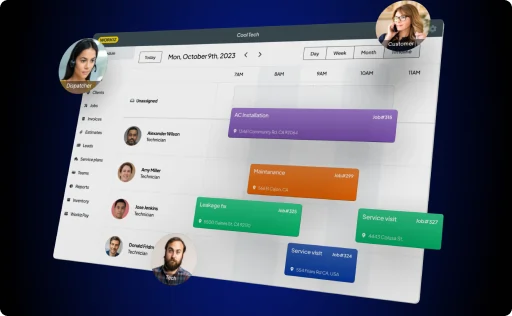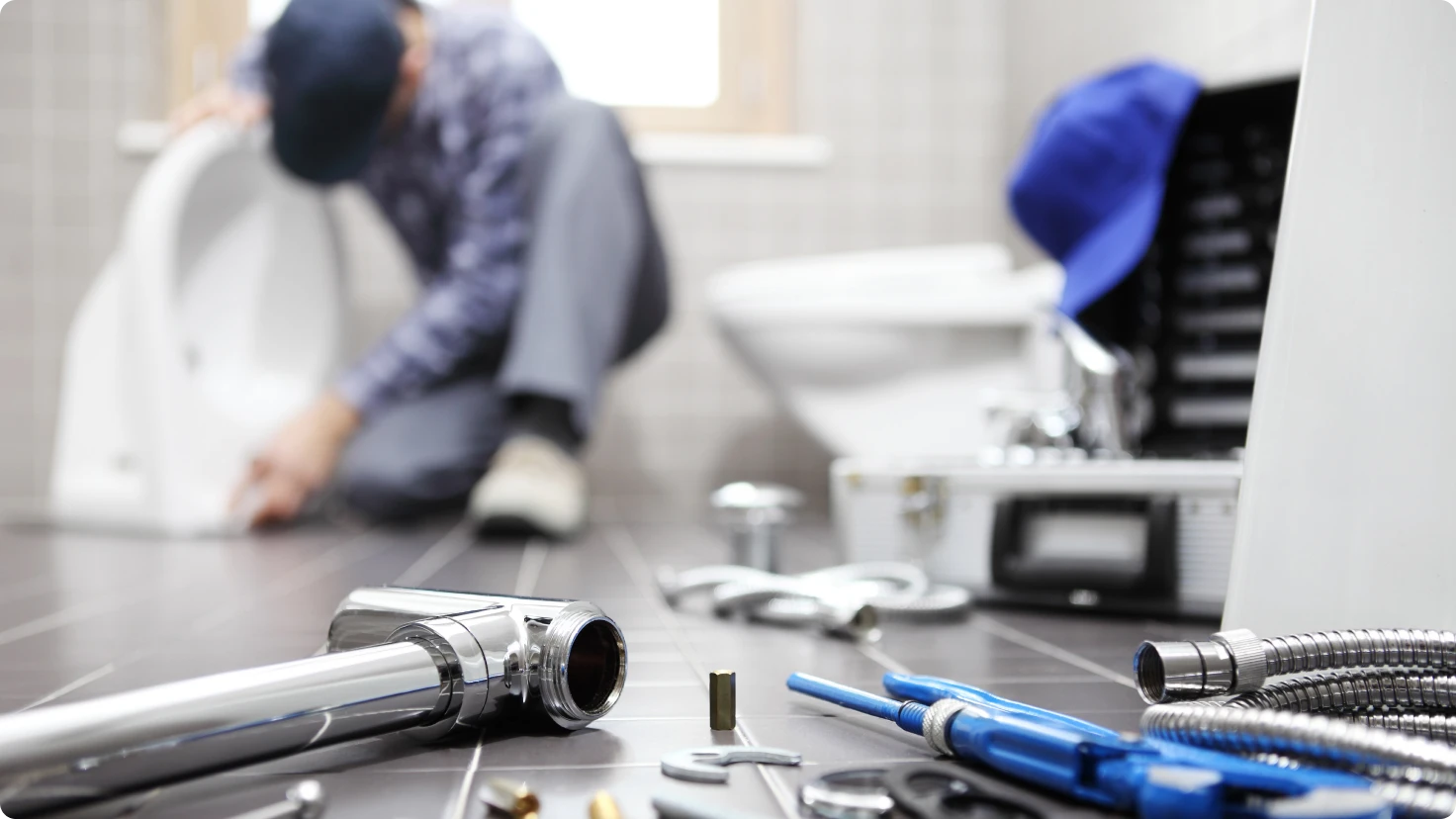Get ready for some numbers that might surprise you. In 2024, the average annual salary for plumbers in the US is $63,215. That’s not too shabby, especially considering it’s above the national median for all occupations. This figure, however, comes with a range. Plumbers can expect to earn anywhere from $29,500 on the low end to $100,000 on the high end.
Factors influencing plumber salaries
Beyond the gurgle of a broken drain and the hiss of a faulty faucet is a wide ecosystem dictating a plumber’s paycheck. While the average plumber in the US earns a respectable $63,215 in 2024, the true story lies in the major factors that can send salaries soaring or swirling down the drain. Let’s explore the hidden currents influencing a plumber’s financial fate.
Location
As with any profession, geography plays a starring role. Plumbers in metropolitan areas like Alaska (with its chilly $88,150 average) or Oregon ($71,663) often see heftier paychecks compared to their rural counterparts. This can be attributed to higher living costs, increased demand for services, and a larger pool of potential employers willing to offer competitive wages.
Experience is golden
Time spent wielding wrenches translates to higher earning potential. Entry-level plumbers might start around $40,000, but seasoned veterans with a decade or more under their belts can command salaries exceeding $80,000. Their expertise in handling complex issues and tackling diverse projects makes them invaluable assets, reflected in their paychecks.
License to be paid more
Holding a plumbing license isn’t just about following the rules; it’s a golden ticket to a financially brighter future. Licensed plumbers typically earn around 10% more than their non-licensed colleagues. The additional training and certification demonstrate competence and inspire employer confidence, translating to better compensation.
Specialization is key
Not all plumbers have the same earning potential and that is partly due to the niche they find themselves. Some choose to specialize in specific areas like commercial plumbing, residential plumbing, or even green plumbing. Mastering a niche can open doors to higher-paying opportunities in specialized projects and lucrative contracts.
Union strong
Belonging to a union offers plumbers a safety net and a boost in earning potential. Unions often negotiate for higher wages, better benefits, and job security, giving their members an edge over non-union plumbers.
Average plumber salary: current trends and statistics
Analyzing plumber salaries in 2024 reveals a dynamic landscape shaped by several key trends and statistics.
Positive growth
Average salary increase
Plumbers saw an average salary increase of 9% over the past five years, reaching $63,215 in 2024. This outpaces the national average salary growth, indicating a healthy job market for plumbers.
Job outlook
The projected plumber job growth rate is 2% from 2018-2028, translating to about 9,100 new jobs for plumbers over the next decade. Learn how to win more leads with Facebook Ads for your plumbing business. The steady growth reflects continued demand for plumbing services due to aging infrastructure, growing populations, and increased focus on water conservation and green plumbing practices.
Regional variations
Significant location impact
Geographical location plays a major role in plumber salaries. Alaska leads the pack with an average of $88,150, followed by Oregon at $71,663 and North Dakota at $70,597. Factors like high living costs, robust economies, and specialized skills in resource-rich regions contribute to these higher salaries.
Urban vs. rural differences
Urban areas generally offer higher plumber salaries due to larger populations, greater demand for services, and higher living costs. However, skilled plumbers in rural areas can still command competitive salaries if they specialize in niche areas or cater to specific industries.
Experience matters
Salary progression with experience
As with most professions, experience significantly impacts plumber salaries. Entry-level plumbers typically start around $40,000, while seasoned veterans with over ten years of experience can earn upwards of $80,000. The expertise and problem-solving skills gained through experience make these plumbers more valuable assets, commanding higher wages.
Job outlook for plumbers
The job outlook for plumbers in the US remains promising for the foreseeable future, driven by several key factors.
Steady job growth
The current projection for plumber job growth is around 2% from 2028 to 2038, indicating a consistent demand for skilled professionals. This demand stems from several factors which include aging infrastructure and the need for sustainability.
Salary comparison: plumbers vs. other skilled trades
Here’s an overview of plumbers’ salaries in the US.
While plumbers stand tall with their above-average salary, electricians and HVAC technicians come close behind. Carpenters and welders, while offering lower averages, still have the potential for high earnings through specialization and experience. Ultimately, the “best” salary depends on individual preferences, skills, and desired lifestyle.
Geographical variation in plumber salaries
Here’s a little breakdown of plumbers’ salaries across different regions.
So, if you’re a plumber looking to navigate the financial currents, remember: sometimes, a change in scenery can mean a change in your paycheck! Research regions with high demand for your skills and expertise, and who knows, you might just find yourself living in a plumber’s paradise with a salary to match.
How to increase your plumber salary
So, you wield a wrench with confidence, conquer clogged drains with aplomb, and your toolbox is an extension of your soul. But let’s face it, plumbers deserve more than just the satisfaction of a job well done. The good news? There are ways to turn your plumbing prowess into a fatter paycheck. Forget waiting for the next pipe to burst, here are some proactive steps to increase your plumber salary in 2024:
Sharpen your skills
Certifications in gas fitting, backflow prevention, or medical gas systems add extra shine to your resume and impress potential employers. Whether it’s fixing antique fixtures or tackling eco-friendly plumbing, specialization makes you a sought-after expert, commanding higher rates.
Learn about smart home systems and automated plumbing – the future of the field demands tech-savvy plumbers. Check out the 35 Best Plumbing Tools for Plumbers for 2024!
Build your own
Every leaky faucet fixed and drain unclogged adds to your value. Time in the trenches proves your expertise and opens doors to higher-paying opportunities. You can hone your leadership skills and navigate the logistical side of the business.
Naturally, supervisors earn significantly more than hands-on plumbers. This is why starting your own plumbing business can be lucrative, but remember, freedom comes with its own set of challenges.
Network like a pro
Connect with colleagues, contractors, and potential clients. Word-of-mouth is powerful, and a strong network can lead to lucrative referrals. Participating in plumbing associations offers networking opportunities, training resources, and career advancement initiatives. Create a strong online presence with a professional website and showcase your skills on social media.
Future projections: plumber salary in 2024
While it’s already the year 2024, I can still provide some insights into what the future might hold for plumber salaries beyond this year. Let’s delve into the projected landscape:
Job growth
The projected plumber job growth rate remains around 2% from 2028 to 2038, suggesting continued demand for skilled professionals. This demand stems from several factors:
Aging infrastructure
Existing plumbing systems will require ongoing maintenance and repair, keeping plumbers busy.
Focus on sustainability
Growing water conservation efforts and green plumbing practices will create opportunities for plumbers with relevant expertise.
Urbanization
Increasing concentration of populations in urban areas will lead to greater demand for plumbing services in these locations.
Salary trends
Continued growth
With a steadily growing job market, plumber salaries are expected to see modest but consistent increases in the coming years. The national average could climb towards $70,000 by 2030, depending on economic factors and inflation.
Regional variations
The gap between high-paying and lower-paying states will likely persist. Locations with high living costs and strong economies, like Alaska and California, might see average salaries exceeding $80,000, while rural areas may remain in the $50,000-$60,000 range.
Predicted factors affecting plumber salary in 2024
Here are some insights into the predicted factors likely to influence plumber salaries in the remaining months of 2024 and onwards into 2025:
Infrastructure needs
Aging infrastructure across the US will continue to require ongoing maintenance and repair, creating a consistent demand for plumbers. This is particularly true in older cities and areas with growing populations.
Focus on sustainability
The increasing push for water conservation and green building practices will generate demand for plumbers specializing in eco-friendly systems and materials. This market segment is expected to see accelerated growth in the coming years.
Urbanization
As populations increasingly concentrate in urban areas, the demand for skilled plumbers to service multi-unit buildings, commercial properties, and public infrastructure will rise. This could lead to higher salaries in urban centers compared to rural areas.
Overall economic trends
A strong national economy generally translates to better job prospects and potentially higher wages for plumbers. Conversely, an economic downturn could put downward pressure on salaries.
Housing market activity
Booming housing markets often increase the demand for plumbing services for new construction and renovations, potentially benefiting plumber salaries.
Experience and expertise
Seasoned plumbers with extensive experience and problem-solving skills naturally command higher salaries. Continuing education and upskilling to stay abreast of technological advancements and industry regulations will be essential for maintaining an edge in the market.
Industries offering the highest plumber salaries
Here’s a list of industries offering the highest plumber salaries:
Industrial plumbing
These plumbers navigate the complex piping systems powering factories, power plants, refineries, and other large-scale facilities. They handle specialized materials like high-pressure pipes, hazardous chemicals, and specialized equipment, requiring deep technical knowledge and safety certifications. Average salary range: $75,000 – $120,000.
Marine plumbing
Maintaining vessels requires plumbers adept at working in cramped spaces, dealing with saltwater corrosion, and understanding unique marine systems. Expertise in sanitation, welding, and electrical systems is often required. Average salary range: $70,000 – $100,000.
Nuclear plumbing
Working on intricate piping systems in nuclear power plants demands the highest level of precision and safety. These plumbers undergo rigorous training and hold specialized certifications for handling radioactive materials and specialized equipment. Average salary range: $80,000 – $140,000.
Medical gas plumbing
Installing and maintaining the delicate gas systems used in hospitals and medical facilities necessitates a deep understanding of medical regulations and safety protocols. These plumbers work with oxygen, nitrous oxide, and other medical gases, requiring specialized knowledge and certifications. Average salary range: $75,000 – $110,000.
Commercial plumbing
Serviced by experienced plumbers familiar with large-scale building systems, commercial buildings like high-rises, hotels, and hospitals, require complex plumbing networks. Expertise in water management, waste disposal, and high-pressure systems is often necessary. Average salary range: $65,000 – $95,000.
Underwater plumbing
Repairing and maintaining underwater infrastructure like pipelines, dams, and bridges demands specialized skills and equipment. These plumbers work in challenging environments requiring SCUBA diving certifications and expertise in underwater welding and construction techniques. Average salary range: $70,000 – $120,000.
Job benefits and perks for plumbers
Asides from the satisfaction of fixing leaky faucets and conquering clogged drains, plumbers deserve and often receive a variety of job benefits and perks that make their careers even more rewarding. Here’s a look at some of the most common ones:
Competitive salaries
As you’ve seen, skilled plumbers in certain industries can command high salaries, with some exceeding $100,000 annually.
Overtime pay
Many plumbing jobs offer overtime pay for hours worked beyond the regular schedule, particularly for emergency repairs or maintenance contracts.
Retirement plans
Many plumbing companies offer employer-sponsored retirement plans like 401(k)s or SIMPLE IRAs, helping plumbers save for their future.
Paid time off
Plumbers typically receive vacation days, sick leave, and personal time off, allowing them to rest and recharge while maintaining work-life balance.
Paid holidays
Most companies observe major holidays and provide paid time off, allowing plumbers to enjoy time with family and friends without sacrificing income.
Tool and equipment allowance
Some employers provide tools and equipment for their plumbers, reducing out-of-pocket expenses and ensuring consistent quality tools for the job.
Job security
Due to the consistent demand for skilled plumbers, the profession offers relatively stable job security compared to some other industries.
As we look ahead in 2024 and beyond, the plumbing industry continues to offer promising opportunities for both newcomers and seasoned professionals. To maximize your earning potential, consider combining your technical expertise with modern business tools. Implementing plumbing service software can streamline your operations, while field management software helps you efficiently handle scheduling, dispatching, and customer relationships. From the frozen pipes of Alaska commanding top dollar to the steady demand in urban centers, plumbers who embrace both traditional skills and modern technology will be best positioned to capture higher earnings in this evolving industry. Whether you’re just starting out or looking to grow your existing business, the future of plumbing remains bright for those willing to invest in their skills, certifications, and business efficiency.
FAQs
Current average plumber salary in the US is around $63,215. Experts predict modest but consistent increases towards $70,000 by 2030, depending on economic factors and inflation.
Yes, continued demand is expected to contribute to salary growth. Factors like aging infrastructure, focus on sustainability, and urbanization will keep plumbers busy and potentially command higher rates.
Experience significantly impacts earnings. Entry-level plumbers start around $40,000, while seasoned veterans with over ten years can earn upwards of $80,000, reflecting expertise and problem-solving skills.
Modest increases are likely. While not a dramatic jump, consistent growth is projected due to steady job growth and increasing demand for skilled plumbers.
Steady job growth (around 2%) driven by aging infrastructure, sustainability efforts, and urbanization. Specialization in niche areas like medical gas systems or green plumbing can significantly boost earning potential. Understanding smart home plumbing systems and automated technologies can open doors to new opportunities.
Yes, licensed plumbers typically earn around 10% more than unlicensed individuals. Holding a license demonstrates competence and opens doors to higher-paying jobs.
Significant location impact: States like Alaska, Oregon, and North Dakota offer higher average salaries due to high living costs and strong economies. Rural areas may have lower averages.












